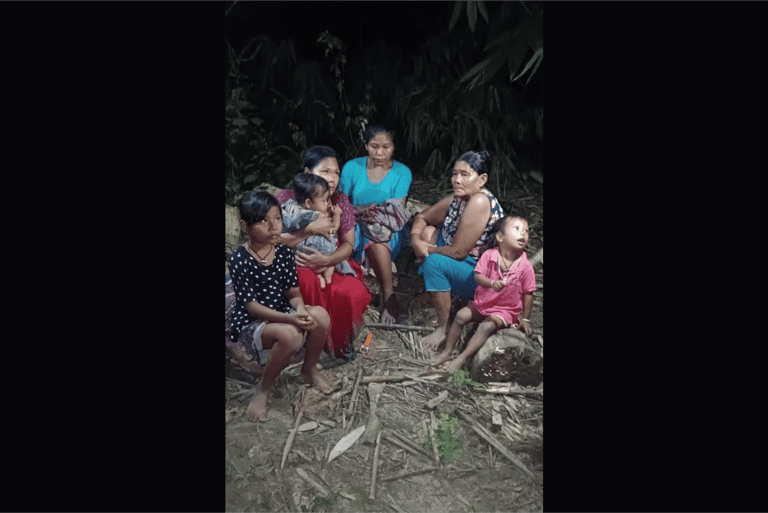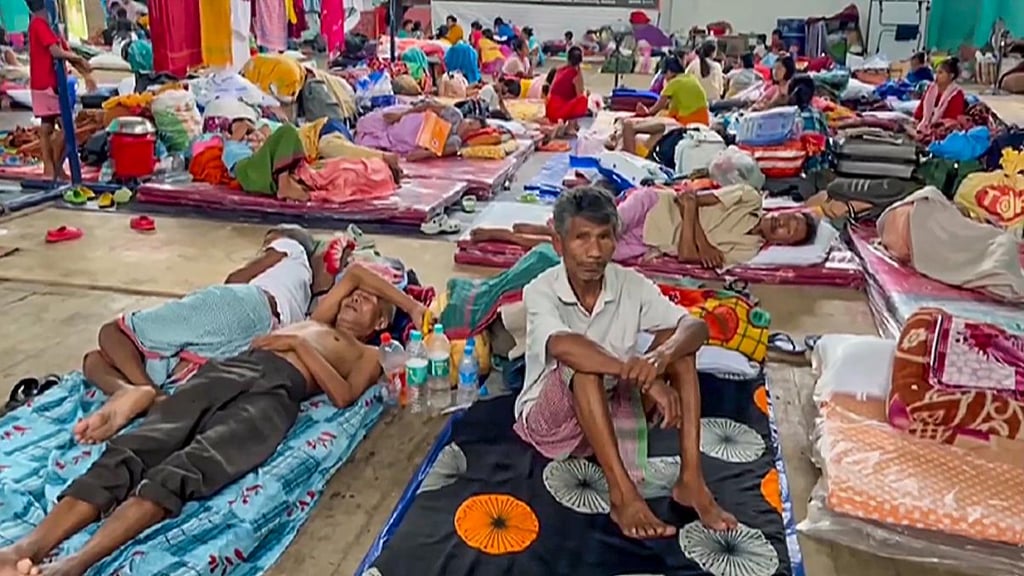Bodies of three Women found in Jiri River, Deepening Manipur’s Ethnic Crisis
CONFLICT
Imphal: The ongoing ethnic strife in Manipur has taken a chilling new turn with the discovery of the bodies of three women floating in the Jiri River on Friday evening. Believed to be part of a Meitei family of six who went missing earlier this week, the tragic underscores the deepening ethnic strife gripping the border state, already strained by the volatile situation in neighboring Myanmar.




The victims were residents of a relief camp in Borobekra, Jiribam, where three women and three children, including a 8-month old infant, had sought refuge after being displaced by violence in June. On Monday, the camp came under attack, reportedly by armed Hmar militants, leading to the family’s disappearance. Security forces had been searching the area, but their efforts yielded only grim outcomes, with descriptions of the recovered bodies closely matching those of the missing individuals.
The bodies were found near Jirimukh, where the Jiri River converges with the Barak River, and have been sent to Silchar Medical College for post-mortem examinations.
Authorities have yet to confirm their identities formally, but the discovery has fueled anger and despair among the Meitei community.
The attack on the relief camp and the subsequent abduction of its residents have once again brought to light the fragile security situation in Manipur. Earlier this week, the bodies of two elderly Meitei men, also from the same camp, were found nearby. Such incidents highlight the mounting vulnerability of displaced populations living in camps meant to shield them from the state’s escalating violence.
The latest tragedy has sparked outrage in Jiribam and across Manipur's Meitei-majority valley, with protestors condemning the state and central governments for failing to protect innocent lives. Demonstrations have intensified, with demands for justice and immediate action against armed groups allegedly exploiting the chaos to target vulnerable communities.
Despite the central government deploying 20 companies of central police forces—comprising 15 companies of the Central Reserve Police Force (CRPF) and 5 of the Border Security Force (BSF)—public confidence in the state remains low. Many have raised concerns about the inability of the Indian Army and the Assam Rifles, the most seasoned paramilitary forces in the region, to identify the perpetrators or determine the whereabouts of six missing members of a family.
On November 11, armed miscreants launched a coordinated assault on a CRPF camp in Borobekra while simultaneously attacking a nearby relief camp. During the assault, they abducted 10 residents from the camp. In the ensuing confrontation, CRPF personnel retaliated, killing 10 of the attackers. However, search operations revealed a grim aftermath: two men from the camp were discovered burned alive, while three women and three children were unaccounted for.
Subsequent developments added to the tension. A photograph surfaced showing the six missing individuals together in a remote jungle, suggesting they were being held captive. This revelation has heightened public outrage and underscored the pressing need for more effective action by security forces.
The incident not only highlights the deteriorating security situation in the region but also raises troubling questions about the preparedness and strategy of the deployed forces to tackle the escalating violence and protect vulnerable communities.
The worsening crisis is a grim reminder of the unchecked ethnic animosities tearing through Manipur, exacerbated by spillover effects from Myanmar’s internal unrest and Indian government’s response to address the Manipur problem.
As tensions escalate, the state faces an urgent need to address its fractured social fabric before further tragedies unfold.
